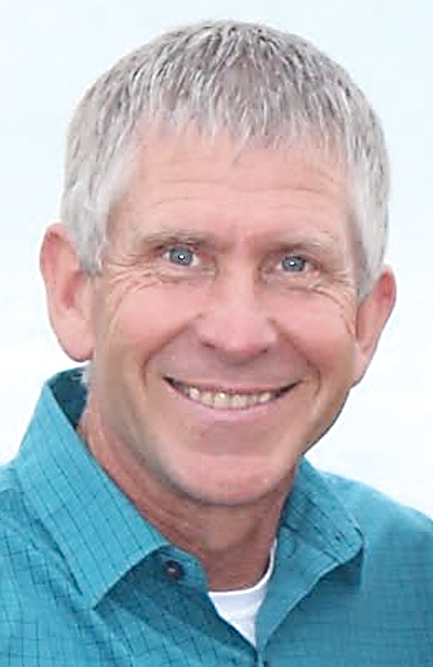SEQUIM — The Sequim-Dungeness Water Users Association is calling for its members to curtail water usage to the point of choosing to let some crops die because of a drop in the amount of water in the Dungeness River.
“The river is getting down to a critical point where we are beginning to have to start cutting back on our irrigation,” Ben Smith, president of the Dungeness Water Users, said Thursday.
Tier two reductions were triggered Thursday when the river flow fell to 110 cubic feet per second (cfs).
“We have an agreement with [the state] Department of Ecology and the Jamestown S’Klallam tribe that we will always leave 62 cubic feet per second of water in the river,” Smith said.
The river flow was 110 cfs Thursday, he said.
“Right now, we are withdrawing a little over 40 cfs, so when we get to 110 cfs and we are pulling 40 cfs, then that leaves 70 cfs in the river,” Smith said.
Tier two reductions include reduction in water diversions from the river as needed to ensure that 62 cfs of water remains in the river.
“Basically, we are going to have to begin to choose some crops to not water,” Smith said.
“So some of our last cuttings of hay — basically, we are not going to be able to water them, so we will lose our last cutting of our hay crops.”
The association has seven irrigation districts and a few agricultural companies in its membership.
The North Olympic Peninsula is in severe drought, according to a report from the U.S. Drought Monitor, which categorized Thursday part of the state as being in extreme drought.
Snowpack is at zero in the Olympic Mountains. The Dungeness River, which relies on snowpack through the summer and early autumn, has dwindled because of the lack of runoff.
On July 24, the river dropped below 120 cfs, triggering the association’s first drought response: tier one.
Tier one reductions, which apply to all irrigation ditch users, include immediate stoppage of supplying water to all ponds, watering lawns and yard plants, watering home fruit and vegetable gardens that could be adequately watered from a well, and stoppage or reduction of watering golf courses, playgrounds and parks.
The cutback will cost farmers.
“Basically, any hay we have to bring in from out of town costs us twice as much to purchase and haul in as it does to grow it,” Smith said.
“Any any shortage on yield basically doubles our cost for that amount of material.”
An estimate on the loss to farmers is currently unavailable, he said.
But some farmers do have a cushion to soften the blow.
Washington Water Trust officials have $200,000 to pay 13 landowners to offset the cost of leaving their fields fallow from Aug. 15 to Sept. 15 as part of a dry-year leasing program funded by Ecology.
The 13 landowners volunteered for the program in late spring.
The program is intended to conserve water and maintain surface water flows in the Dungeness River.
“We did a lease-back program, so some of our acres we have already agreed that we would not water,” Smith said.
“For the acres that we put into that, the amount they paid us will cover what we have to provide hay for, so that is going to be a wash.”
At Smith’s Maple View Farm on Schmuck Road, “we put in a little over 300 acres in that program,” he said.
“We farm a little over 600 acres. So half of our acres — our exposure is covered through that program, and the other half we are just going to have to eat it this year.”
Altogether, about 800 acres of farmland will not be irrigated during the 30-day period, according to the agreement, Amanda Cronin, Washington Water Trust project manager, has said.
That equates to about 330 acre feet of water, or about 107,530,970 gallons.
Smith said his farm can muscle through the loss in revenue this year, but if the drought continues next year, that will bring additional woes.
“A one-year hit like this — we can absorb that, and the lease-back program will help with part of it,” he said.
“But if we had a couple of years in a row like this, that would begin to significantly affect our operation.”
The organization has urged other residents to curtail their water usage so more water can be siphoned to farmers.
“Every person is needed to take part in this effort,” the organization said in a news release.
“If you are in the city and decrease your water use, less water will have to be drawn from the city wells, which in turn will draw less water from the river to replenish the aquifers that supply these wells.”
The same applies to residents with private wells, the organization said.
________
Sequim-Dungeness Valley Editor Chris McDaniel can be reached at 360-681-2390, ext. 5052, or cmcdaniel@peninsuladailynews.com.

